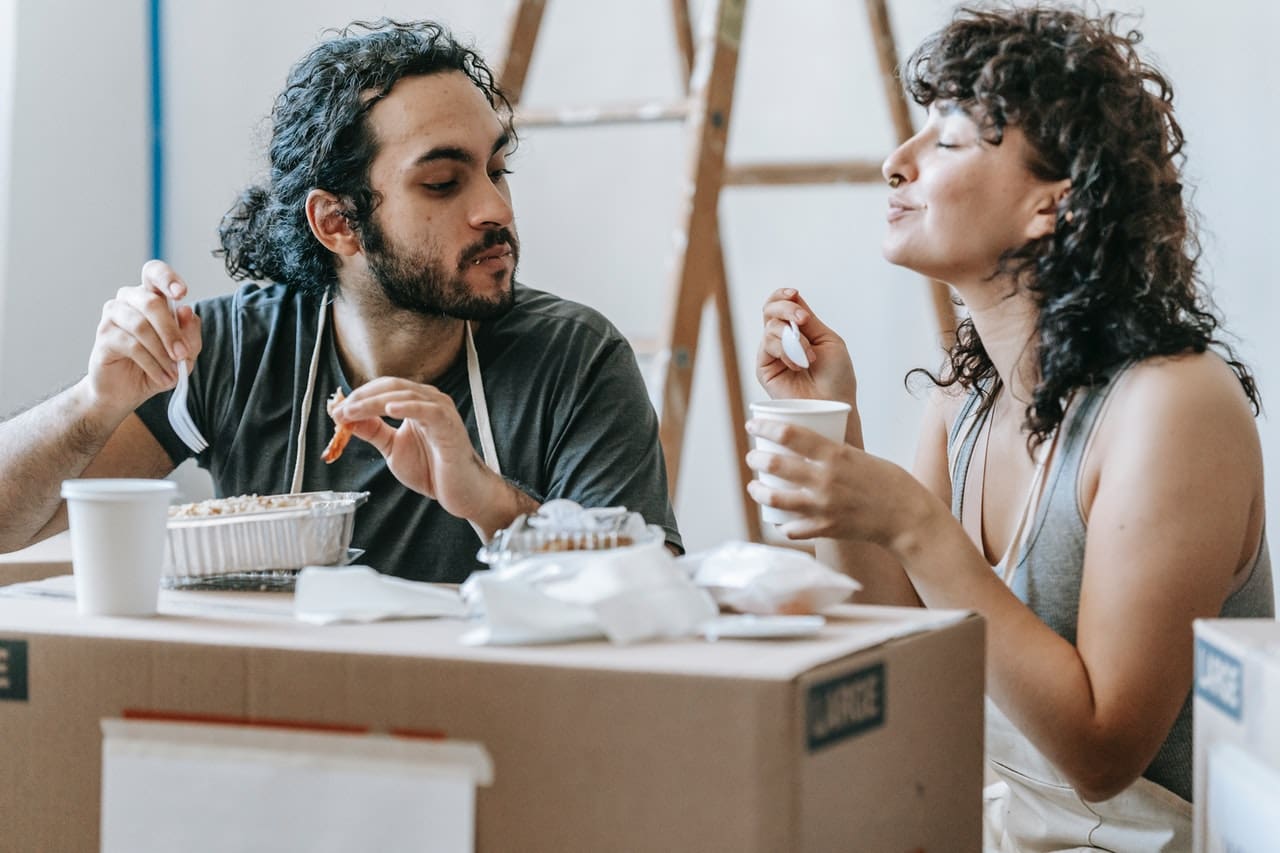Why are relationships so hard? The relationships we have with others – our romantic partner, our coworkers, friends, family – all can contribute both positively and negatively to our lives. Each adds its own amount of weight and has a certain level of focus and priority in our lives. show me, relationships aren’t hard. They do take a lot of work. I attribute this to my mindfulness in relationships. Which is simple, but not easy.

KEY POINTS
- My approach to mindfulness in relationships enables me to put all of them in their proper perspective, get rid of ones that aren’t healthy, truly value the ones that do, and ensure that they are fulfilling.
Mindfulness in Relationships
I know that we all need relationships to be healthy and happy. Friendship, co-workers, family, and dating relationships are all important and require constant care and communication. They’re a process and you have to continually nurture your relationships in order to keep them alive and joyful.
How is mindfulness different than just being mindful of your relationships? I guess the best way is to explain what it isn’t. Mindfulness in this sense does not mean noticing when something’s wrong, then fixating on that problem and becoming angry or upset about it. Nor does it mean working hard to solve that problem or change whatever caused it in the first place. Rather, it’s being more aware of what your partner is feeling from moment to moment and accepting this without judgment or preconceived notions of what should be happening.
Why is this so important? Because when you’re mindful in a relationship, you get to avoid all kinds of problems that people who aren’t mindful can run into.
By becoming mindful of how these relationships add up to our lives, we can learn to embrace them and understand their values in our lives. This can increase the richness of the relationship and help them grow and evolve over time.
The relationships I have had and have had a huge impact on my life, my circumstances, and my overall well-being. My mindfulness approach to relationships has enabled me to put all of them in their proper place and perspective, simplify and get rid of the ones that aren’t healthy and/or don’t serve me, truly value the ones that do, and ensure that they continue to thrive and grow.

What is mindfulness?
“In today’s rush, we all think too much — seek too much — want too much — and forget about the joy of just being.” ~Eckhart Tolle
You’ve probably heard of the term mindfulness. It’s a hot buzzword and thrown around in many places from corporate training to self-help blogs. You may even be familiar with mindfulness as a bunch of breathing and focus exercises designed to help us relax and handle things better.
I know what you’re thinking, “What does being more relaxed have to do with my relationships?”
Well, for starters that understanding of mindfulness is grossly inaccurate. Mindfulness is becoming aware of our inner and outer realities without judgment. It’s an ongoing journey towards the center of our being. Getting to the heart of our true nature. In the center, where everything is calm, and there’s no turmoil.
Most of the time, we’re unaware of our thoughts and emotions. We’re on autopilot. Lots of thoughts come and go on their own, drive our actions, elicit emotions, and form the basis for our overall mental and emotional state. The mind, just hops from one thought to another, like a monkey. And we often find ourselves going along on rides of our thoughts, taking us completely out of the present moment.. We’re “lost in thoughts” and seem to have many things that are said to us, or happened to us, or that we do that cause us to feel a certain way.
Instead of going on these rides and responding to our thoughts, mindfulness is observing them without any judgment. Thoughts aren’t good or bad, positive or negative, and we don’t even try to resist them. Instead of reacting, mindfulness gives us tools to quietly watch them without any interference. We become aware of the mess in our minds. By practicing mindfulness, over time the thoughts will still come and go, we just won’t be jumping on for the ride. The space between them will be greater, clearer. We will be aware of how we react to them and be able to control that. We feel true “peace of mind” for the first time. That’s mindfulness.
And, it turns out that mindfulness in relationships is quite the game-changer. If you’ve ever looked at Buddhist teachings or read about any number of Eastern philosophies, you might be aware of the idea that what we think largely dictates how we feel. This is also true for our relationships. Mindfulness can help us notice how our thoughts are impacting our emotions and even the way others act around us. And just like that, things start to change.
You can become mindful of your body, your mind, and your emotions. Simple, not easy though. It’s not something that happens overnight or a one-day task. It requires persistent practice and of course, cultivating focus and awareness.
Get the free guide Quiet Confidence: A Men’s Guide to Living a Free, Authentic, Joyful, Centered, & Purposeful Life”
This workbook will provide you with an introduction to mindfulness as a foundation for living a more deliberate, authentic, purposeful life of peace, freedom, health, and fulfillment.
You’ll also signup for the newsletter to get valuable content right in your inbox.
Your privacy is respected. Data will never be sold or shared. Unsubscribe at any time.
How can mindfulness in relationships actually improve them?
“Respond; don’t react. Listen; don’t talk. Think; don’t assume.” ~Raji Lukkoor
It’s easy to get caught up in our day-to-day lives and forget what is at the forefront of a great relationship. And that’s gratitude. Gratitude for the other person for being in your life, gratitude that you even have a relationship with them, and gratitude for everything that they are. We become so caught up in our expectations that we tend to forget what we already have because we’re too busy focusing on what we think we should have. And by becoming aware of the importance of others in your life, you’ll feel grateful towards them more often which will improve your relationships significantly.
One of the main reasons why relationships fail these days is because we just don’t understand each other. We’re always looking at things from our own perspective, seeing things from the lens of what’s important to us. But if we want to get along with somebody, we can’t think about it from our point of view–we need to try to see it from theirs. It sounds more complicated than it needs to be, but if a guy really wants a happy marriage, he needs to try not to judge his wife, and see everything through her eyes for a while. And that will lead him close enough that eventually, he’ll start understanding her better and better. It’s going to be more of a struggle at first because he’s got to do all the work, but if he really wants it, that should be what matters.
This is where mindfulness in relationships comes in. To see things as they are, not as we interpret them or want them to be.
If we become mindful of our conversations – what is actually being said, how we feel about that, why we are saying what we are – we will not “react” but rather we will “respond“. This will help us to understand the other person without our own judgment. We can begin to truly understand, rather than interpret through the lens of our “point of view“.
How do I actually put mindfulness in relationships into practice?
“In the death of ego, love is born, God is born, light is born, miseries disappear as if they never existed.” – OSHO
Here is how I actually practice mindfulness in relationships and keep them healthy:
I quiet my mental chatter before interacting.
Being aware of how I react to things – my interpretation of what is being said, the emotions that are elicited by that interpretation, my ego’s response – allows me to wade through those without any one of them driving how I respond and react. I let those thoughts come and go and don’t jump on any one of them as my outward expression.
Now, this doesn’t mean that I suppress my thoughts or emotions. I remember that my thoughts and emotions, even anger, might seem to be provoked by external factors like what the other person is saying or doing. The source of those feelings and emotions is from within me. So, when I do have those thoughts and emotions, like becoming angry, I become aware of that anger and try to find the source; the “why”. I don’t suppress or express it. But, simply witness without any judgment. Soon, I feel the anger weakening and passing and I am then free to respond with my truth, not my ego’s thoughts and emotions.
I reduce and let go of excessive desires and practice acceptance.
Another way I apply mindfulness in relationships is by focusing on what things truly are, not what I want, hope, or expect them to be. Many of my relationships have undergone evolutions. Sometimes I evolve along with them. Sometimes I don’t. Friendships that I’ve had since childhood may not quite be the same now as they were then. As we have grown as people, and most especially as adults with our own experiences, the relationship may not be what it was. It may have different meanings to each of us, or serve different purposes, or have a different priority. So, I let go of my desire for it to be something that it isn’t or something that I wanted to be, and rather just appreciate it for what it is and that it is.
I do only what is necessary, without interference.
Many of us want to be understood. I’m no different, I have that desire to be understood in conversations just like most people do. However, I realize that that’s not always important. I realize it’s not important for the other person to understand why I feel the way that I do, or why I’m responding the way that I am, or why I mean the things that I do. Sometimes, it is helpful for understanding between us. Most of the time it’s not. So by bringing mindfulness in relationships, I try to be aware of my superfluous thoughts, gestures, actions, words, etc. and try not to let them add clutter to what I’m conveying.
I try to say only what is necessary and end once there is comprehension. No reason to keep elaborating once my point is made and understood. Oftentimes I ask if the person understands what I just said or if that makes sense to me, and I accept their answer. I don’t try to keep explaining if they do. I asked how I can help them understand if they don’t. And, though it’s often hard, I avoid the temptation to offer my help or opinion when it’s not asked for.
I practice unattached action.
Many times I would do or say things with a quid-pro-quo behind them. “If I do this thing for you, you’re then going to do this thing for me.” The problem would be, that agreement would only be in my head. I just expected the other person to reciprocate, to even know what it was that I wanted them to reciprocate, and then reserve the right to be disappointed when they didn’t. In his wonderful book No More Mr. Nice Guy, Dr. Robert Glover calls these “covert contracts”. I would place an expectation on the other person without them even knowing it. They wouldn’t always do what I expected of them. I would then be upset with them or disappointed and, of course, they wouldn’t know why.
So now, just as I accept that person for who they are, accept what they say for what it is, and accept a relationship for what it is, I also accept what I say for what it is. I don’t place a sort of expectation upon the other person without expressing that to them. And I especially don’t say things or do things solely for the reason of getting something in return. So, through mindfulness in my relationships, I learn to accept the other person just as he or she is, as well as the situation and what is said for what it is.
Conclusion
For me, applying mindfulness in relationships, following these steps, leads me to have better, healthier, and more fulfilling relationships. It also enables me to remove or reprioritize those that aren’t working for me. By becoming mindful, I’m able to manage my relationships like never before. These are just some of the applications. Mindfulness, if practiced regularly, holds the power to transform our lives. It helps me to move toward a more blissful life and peace of mind.
“Good questions outrank easy answers.” – Paul A. Samuelson (American economist)
- What expectations do you find yourself placing on others? Are they aware of those expectations?
- How aware are you of your thoughts, emotions, reactions, – your mental chatter – when you’re speaking or interacting with someone?
- What more do you want out of your various relationships?
Want more? Get “A Beginner’s Guide to Mindfulness: Basic Advice & Strategies”
This workbook will provide you with an introduction to mindfulness, including its uses and benefits in your everyday life. It will help improve your mindfulness skills to improve your mental and physical health and keep you grounded in the present.
You’ll also signup for the newsletter to get valuable content right in your inbox.






